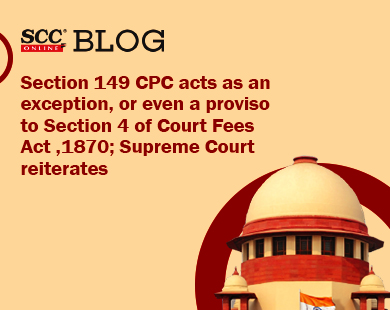Supreme Court: In an appeal challenging the order passed by Himachal Pradesh High Court, wherein the Court had dismissed the condonation of delay applications filed under Section 5 of the Limitation Act, 1963, declining to condone a delay of 254 days, because the reasons assigned for the condonation were not sufficient reasons for condonation of the delay, the division bench of PS Narasimha and Sudhanshu Dhulia*, JJ. held that the High Court was right in dismissing appellant’s application, as insufficient funds could not have been sufficient ground for condonation of delay, under the facts and circumstance of the case.
The Court said that an appeal must be filed within the stipulated period, prescribed under the law, and belated appeals can only be condoned, when sufficient reason is shown before the court for the delay. The party who seeks condonation of delay, therefore, must explain the delay of each day. It is true that the Courts should not be pedantic in their approach while condoning the delay, and explanation of each day’s delay should not be taken literally, but the fact remains that there must be a reasonable explanation for the delay.
In this case, the delay has not been explained to the satisfaction of the Court, as the only reason assigned by the appellant for the delay of 254 days in filing the first appeal was that he did not have sufficient funds to pay the court fee. This was not found to be a sufficient reason for the condonation of delay, as the appellant was an affluent businessman and a hotelier.
The Court said that, even it is presumed that the appellant was short of funds, at the relevant point of time and was not able to pay court fee, nothing barred him from filing the appeal as there is provision under the law for filing a defective appeal, i.e., an appeal which is deficient as far as court fee is concerned, provided the court fee is paid within the time given by the Court. Further, it referred to Section 4 of Court Fees Act 1870 and Section 149 (Power to make up deficiency of Court Fees ) of the Code of Civil Procedure, 1908 (‘CPC’), and said that in terms of Section 4, an appeal cannot be filed before a High Court without court fee, if the same is prescribed, but both these provisions need to be read together.
The Court relied on Mannan Lal v. Chhotaka Bibi, (1970) 1 SCC 769, wherein it was said that “in considering the question as to the maintainability of an appeal when the court fee paid was insufficient to start with, but the deficiency is made good later, the provisions of the Court Fees Act and the CPC must be read together to form a harmonious whole and no effort should be made to give precedence to provisions in one over those of the other, unless the express words of a statute clearly override those of the other”
The Court said that the appellant had paid the court fee, though belatedly, but reasons assigned for the delay in filing the appeal cannot be a valid reason for condonation of the delay, since the appellant could have filed the appeal deficient in court fee under the provisions of law, referred above. Therefore, it held that the High Court was right in dismissing Section 5’s application of the appellant as insufficient funds could not have been sufficient ground for condonation of delay, under the facts and circumstance of the case.
It also said that, it would have been entirely a different matter had the appellant filed an appeal in terms of Section 149 CPC and thereafter removed the defects by paying deficit court fees.
Moreover, the Court said that even on merits, this case does not call for interference, as the assignment is not valid, as there was no prior consent or approval of the seller before the assignment. In the absence of such a condition and in lieu of the fact that before assignment of its rights to the appellant, no permission was obtained from the seller, there was no question of granting a decree of Specific Performance in favour of the appellant.
Further, the Court added that the whole purpose of Section 118 of the Himachal Pradesh Tenancy and Land Reforms Act, 1972 (‘1972 Act’) is to protect agriculturists with small holdings. Land in Himachal Pradesh cannot be transferred to a non-agriculturist, to save the small agricultural holding of poor persons and to check the rampant conversion of agricultural land for non-agricultural purposes. A person who is not an agriculturist can only purchase land in Himachal Pradesh with the permission of the State Government.
[Ajay Dabra v. Pyare Ram, 2023 SCC OnLine SC 92, decided on 31-01-2023]
*Judgment by: Justice Sudhanshu Dhulia
*Apoorva Goel, Editorial Assistant has reported this brief.







